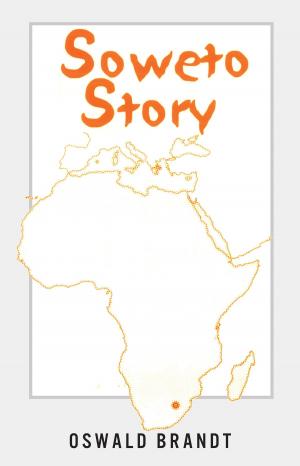| Author: | Michael Ferres | ISBN: | 9781922204769 |
| Publisher: | Vivid Publishing | Publication: | July 23, 2013 |
| Imprint: | Language: | English |
| Author: | Michael Ferres |
| ISBN: | 9781922204769 |
| Publisher: | Vivid Publishing |
| Publication: | July 23, 2013 |
| Imprint: | |
| Language: | English |
A geologist, working under several layers of isolation in a remote equatorial forest on the distant planet of Einsteinia digs up something very unpleasant. Then he prepares to tell everyone about it at a scientific conference. Consular officials from Earth are appalled. Leaders of the Einsteinian religion are determined that he won’t tell his story. Is the revelation really a threat to their religion? And are the geologist’s reasons for wanting to present it those of disinterested scientific inquiry, or does something else move him? Einsteinia, as it is called by people from Earth who have settled it and developed it, is one of the Great Scientist system of planets—including Newtonia, Galilea and Copernica. To its original inhabitants it is known as Veladilimanda, and that is the name that everyone should now use, as the transition back to control by those inhabitants proceeds. The Velans have for some time been subject to the political, economic, and in many ways the cultural influence of Earth. They have however allowed no interference with their own religion, the elements of which in some ways resemble those of Islam, of Buddhism and of New Age. At the latest conference of Velan studies one of the speakers is a geologist who seems psychologically unsuited to the role he has forced upon himself—that of a lone explorer in an alien culture—and who has not worked through offences real and imagined inflicted by people he has known both on his home and his adopted planets. The apparently matter-of-fact presentation of the results of his geological excavations actually exposes an enormous crime, and represents a threat to the basis of the religion of Einsteinia. Another speaker dips into the epic saga literature of Vela, some of whose characters and experiences seem strangely to reflect the characters of the present drama. Are the scientific facts really facts—or are they distorted by envy, wish or revenge? Can they be allowed to remain fact if they undermine an entire religion? Watching the geologist also is a Christian missionary whose long sojourn on Einsteinia has apparently borne no fruit. And a final judgement still is coming, and who will be found wanting and who redeemed?
A geologist, working under several layers of isolation in a remote equatorial forest on the distant planet of Einsteinia digs up something very unpleasant. Then he prepares to tell everyone about it at a scientific conference. Consular officials from Earth are appalled. Leaders of the Einsteinian religion are determined that he won’t tell his story. Is the revelation really a threat to their religion? And are the geologist’s reasons for wanting to present it those of disinterested scientific inquiry, or does something else move him? Einsteinia, as it is called by people from Earth who have settled it and developed it, is one of the Great Scientist system of planets—including Newtonia, Galilea and Copernica. To its original inhabitants it is known as Veladilimanda, and that is the name that everyone should now use, as the transition back to control by those inhabitants proceeds. The Velans have for some time been subject to the political, economic, and in many ways the cultural influence of Earth. They have however allowed no interference with their own religion, the elements of which in some ways resemble those of Islam, of Buddhism and of New Age. At the latest conference of Velan studies one of the speakers is a geologist who seems psychologically unsuited to the role he has forced upon himself—that of a lone explorer in an alien culture—and who has not worked through offences real and imagined inflicted by people he has known both on his home and his adopted planets. The apparently matter-of-fact presentation of the results of his geological excavations actually exposes an enormous crime, and represents a threat to the basis of the religion of Einsteinia. Another speaker dips into the epic saga literature of Vela, some of whose characters and experiences seem strangely to reflect the characters of the present drama. Are the scientific facts really facts—or are they distorted by envy, wish or revenge? Can they be allowed to remain fact if they undermine an entire religion? Watching the geologist also is a Christian missionary whose long sojourn on Einsteinia has apparently borne no fruit. And a final judgement still is coming, and who will be found wanting and who redeemed?















